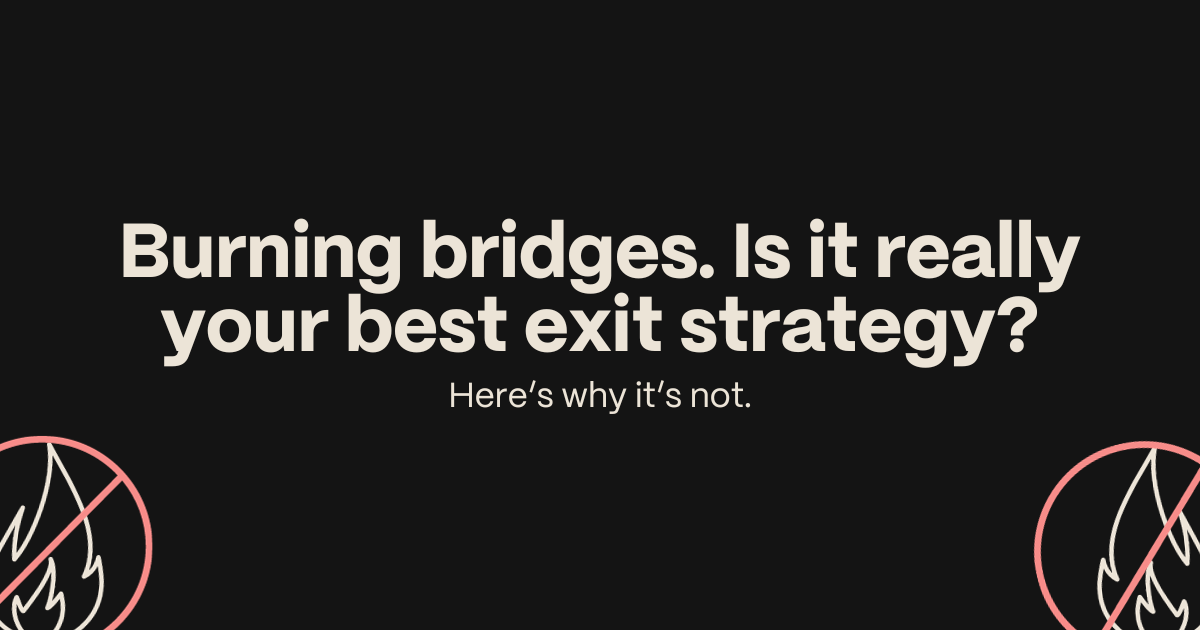
Why burning bridges is as bad as it sounds
Have you ever considered leaving a job with a figurative (or literal) “🎤 drop“?
Here’s why it’s not worth it.
#1 The world’s a small place
Believe it or not, the professional world is smaller than it seems.
You’re likely to cross paths with former colleagues, bosses, or clients in the future.
It’s better to keep those relationships friendly.
#2 What do people say about you when you’re not in the room?
When you leave well, you maintain a strong professional reputation.
This reputation proceeds you – whether you like it or not.
Because it’s not just about your past, it’s about your future opportunities too.
#3 References, who needs ’em? You do!
We’re not talking about the formal referee here.
We’re talking about the – “Hey, have you ever worked with X?” reference.
Leaving well can ensure people have a good feeling about you – and that pays dividends.
#4 Keeping the doors open
You never know when you might need a favour from a former employer.
Advice on a career move or connections to someone in their network.
Burnt bridges don’t lead anywhere.
#5 The no-return policy
Remember when you were little, and people told you not to slam doors on your way out?
Well, the same applies here.
Burning bridges might mean you can never return to that organisation – a fallback option gone up in smoke.
#6 Travel light, travel right
Leaving on a bad note can leave you carrying negative feelings into your next job.
Travel light into your new journey.
It’s healthier and more productive.
#7 Forge ahead
Professional growth is about building foundations, not mislaying them.
However wobbly and challenging, those bridges held your steps to where you stand now.
Respect the past and forge ahead.
Remember, how you leave a job is as important as how you start one.
Keep it professional.

